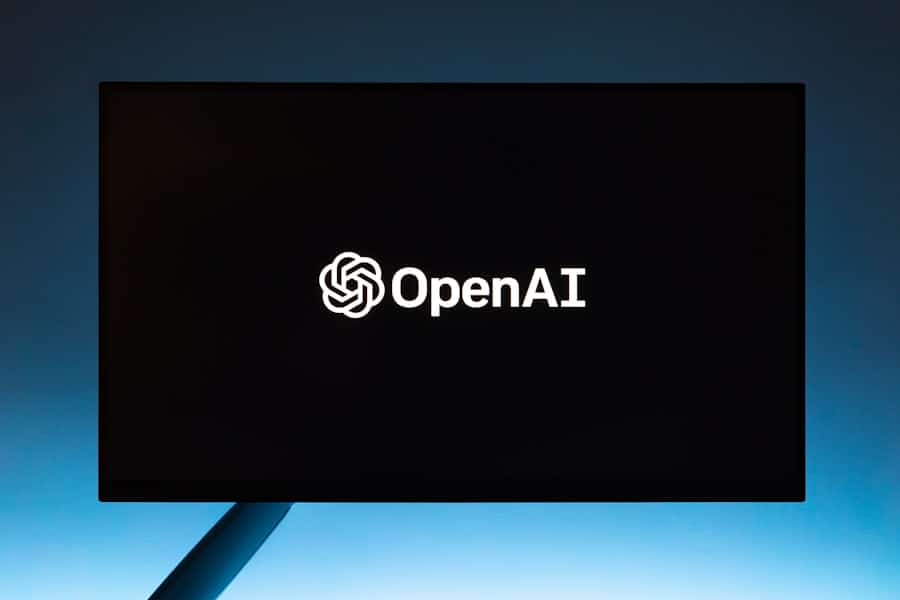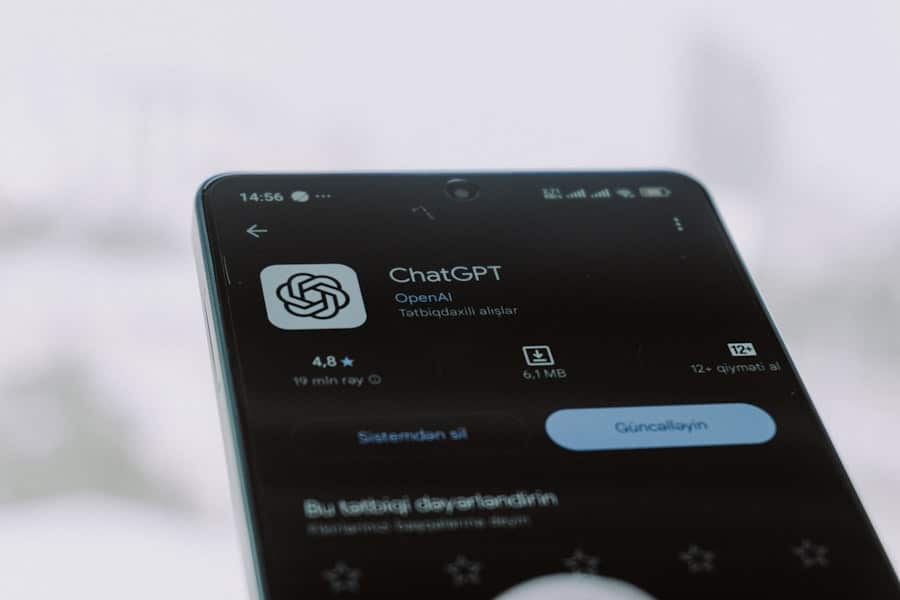The advent of artificial intelligence (AI) has revolutionized numerous sectors, and mental health support is no exception. AI-powered chatbots have emerged as innovative tools designed to assist individuals grappling with mental health issues. These digital companions leverage natural language processing and machine learning algorithms to engage users in meaningful conversations, providing immediate support and resources.
Unlike traditional methods of therapy, which often require scheduling and can be inaccessible for many, chatbots offer a unique solution that is both scalable and efficient. They can serve as a first point of contact for individuals seeking help, guiding them through their emotional struggles with empathy and understanding. The integration of chatbots into mental health care is not merely a technological advancement; it represents a paradigm shift in how mental health services are delivered.
With the increasing prevalence of mental health disorders globally, the demand for accessible and affordable support has never been greater. According to the World Health Organization, approximately one in four people will experience a mental health issue at some point in their lives. This staggering statistic underscores the urgent need for innovative solutions that can bridge the gap between individuals in need and the resources available to them.
AI-powered chatbots are positioned to play a crucial role in this landscape, offering a blend of immediacy, anonymity, and personalization that traditional methods often lack.
Key Takeaways
- AI-powered chatbots are revolutionizing mental health support by providing accessible and personalized assistance to individuals in need.
- These chatbots play a crucial role in offering 24/7 support, ensuring that individuals can receive help and guidance at any time, even outside of traditional working hours.
- The confidential nature of AI-powered chatbots allows individuals to seek support without the fear of judgment or stigma, leading to more people seeking help for their mental health concerns.
- AI-powered chatbots are reducing the stigma surrounding mental health by increasing accessibility to support, reaching individuals who may not have sought help through traditional means.
- The integration of AI-powered chatbots with traditional therapy and counseling is enhancing the overall mental health support system, providing a comprehensive approach to addressing individuals’ needs.
The Role of AI-Powered Chatbots in Providing 24/7 Support
One of the most significant advantages of AI-powered chatbots is their ability to provide round-the-clock support. Mental health crises do not adhere to a 9-to-5 schedule; they can arise at any moment, often when traditional services are unavailable. Chatbots are designed to be accessible at any time, allowing users to reach out for help whenever they need it.
This constant availability can be particularly beneficial for individuals who may feel isolated or reluctant to seek help during conventional hours. The immediacy of support can make a substantial difference in moments of distress, offering users a lifeline when they need it most. Moreover, the 24/7 nature of chatbot support can alleviate some of the barriers associated with seeking mental health care.
Many individuals experience anxiety or fear when contemplating reaching out to a therapist or counselor, often worrying about judgment or stigma. Chatbots provide a non-threatening environment where users can express their feelings without fear of repercussions. This anonymity can encourage more people to seek help, as they can engage with the chatbot from the comfort of their own homes, free from the pressures of face-to-face interactions.
The ability to access support at any time can empower users to take proactive steps toward managing their mental health.
Personalized and Confidential Support through AI-Powered Chatbots

Personalization is another key feature that sets AI-powered chatbots apart from traditional mental health resources. These chatbots utilize sophisticated algorithms to tailor their responses based on user input, creating a more engaging and relevant experience. By analyzing user interactions, chatbots can adapt their conversational style and content to better meet individual needs.
For instance, if a user expresses feelings of anxiety, the chatbot can provide specific coping strategies or mindfulness exercises tailored to that emotional state. This level of customization enhances the user experience and fosters a sense of connection between the individual and the chatbot. Confidentiality is paramount in mental health discussions, and AI-powered chatbots are designed with this principle in mind.
Users can engage in conversations without the fear of their information being shared or judged. This confidentiality encourages openness and honesty, allowing individuals to explore their thoughts and feelings more freely. The secure nature of these interactions can be particularly appealing for those who may have previously hesitated to seek help due to concerns about privacy.
By ensuring that conversations remain confidential, chatbots create a safe space for users to navigate their mental health challenges.
How AI-Powered Chatbots are Reducing Stigma and Increasing Accessibility to Mental Health Support
Stigma surrounding mental health issues remains a significant barrier to seeking help for many individuals. Traditional perceptions often associate mental illness with weakness or failure, leading to feelings of shame among those affected. AI-powered chatbots play a pivotal role in reducing this stigma by normalizing conversations about mental health.
By providing an anonymous platform for users to discuss their feelings and experiences, chatbots help demystify mental health issues and promote a culture of openness. This shift in perception is crucial for encouraging individuals to seek help without fear of judgment.
Geographic location, financial constraints, and availability of services often limit individuals’ access to traditional therapy options. Chatbots eliminate many of these barriers by providing immediate support that is not bound by location or cost. Many chatbot applications are available for free or at a low cost, making them an attractive option for those who may not have the means to afford traditional therapy sessions.
This increased accessibility ensures that more individuals can receive the support they need, regardless of their circumstances.
The Integration of AI-Powered Chatbots with Traditional Therapy and Counseling
While AI-powered chatbots offer numerous benefits as standalone tools for mental health support, their true potential lies in their integration with traditional therapy and counseling practices. Rather than replacing human therapists, chatbots can complement existing services by providing additional resources and support between sessions. For example, a therapist might recommend a chatbot for clients to use when they need immediate coping strategies or emotional check-ins outside of scheduled appointments.
Furthermore, the data collected by chatbots can provide valuable insights for therapists regarding their clients’ progress and challenges. By analyzing user interactions, therapists can gain a better understanding of their clients’ emotional states between sessions, enabling them to tailor their therapeutic approaches more effectively.
This synergy between technology and human expertise creates a more holistic approach to mental health care, enhancing the overall effectiveness of treatment plans.
Ethical Considerations and Limitations of AI-Powered Chatbots in Mental Health Support

Despite the promising potential of AI-powered chatbots in mental health support, several ethical considerations must be addressed. One primary concern is the accuracy and reliability of the information provided by these digital tools. While chatbots are designed to offer support based on established therapeutic principles, there is always a risk that they may misinterpret user input or provide inappropriate responses.
Ensuring that chatbots are regularly updated with accurate information and guidelines is essential for maintaining their effectiveness and credibility. Another ethical consideration revolves around data privacy and security. Users must feel confident that their conversations with chatbots are secure and confidential.
Developers must implement robust security measures to protect user data from breaches or unauthorized access. Additionally, transparency regarding how user data is collected, stored, and utilized is crucial for building trust between users and chatbot platforms. Addressing these ethical concerns is vital for ensuring that AI-powered chatbots serve as safe and effective tools for mental health support.
Success Stories and Case Studies of AI-Powered Chatbots in Mental Health Support
Numerous success stories highlight the effectiveness of AI-powered chatbots in providing mental health support across various demographics and settings. One notable example is Woebot, an AI-driven chatbot designed to offer cognitive-behavioral therapy (CBT) techniques through conversational interactions. Users have reported significant improvements in their mood and coping skills after engaging with Woebot regularly.
The chatbot’s ability to provide immediate feedback and resources has made it a valuable tool for individuals seeking support outside traditional therapy settings. Another compelling case study involves Wysa, an AI chatbot that has been implemented in various organizations and educational institutions worldwide. Wysa offers users evidence-based techniques for managing stress, anxiety, and depression while also providing resources tailored to specific populations such as students or employees facing workplace challenges.
Feedback from users indicates that Wysa has helped many individuals feel more empowered in managing their mental health, illustrating the potential impact of AI-powered chatbots on diverse communities.
The Future of AI-Powered Chatbots in Mental Health Support and Potential Developments
As technology continues to evolve, the future of AI-powered chatbots in mental health support holds immense promise. Ongoing advancements in natural language processing and machine learning will likely enhance the capabilities of these digital companions, allowing them to engage in even more nuanced conversations with users. Future developments may include improved emotional recognition algorithms that enable chatbots to detect subtle changes in user sentiment based on text input or voice tone, further personalizing interactions.
Additionally, there is potential for greater integration between AI-powered chatbots and other digital health tools such as wearable devices or mobile applications focused on wellness tracking. By combining data from various sources, these systems could provide comprehensive insights into an individual’s mental health journey, offering tailored recommendations based on real-time data analysis. As research continues into the efficacy of these technologies, we may see an increasing acceptance of AI-powered chatbots as essential components of holistic mental health care systems worldwide.
In conclusion, while challenges remain regarding ethical considerations and limitations, the potential benefits of AI-powered chatbots in mental health support are undeniable. Their ability to provide accessible, personalized assistance around the clock positions them as valuable allies in addressing the growing mental health crisis globally. As we look ahead, continued innovation in this field promises exciting developments that could further enhance our understanding and management of mental well-being through technology.
A related article to How AI-Powered Chatbots Are Improving Mental Health Support is The Best Lenovo Laptops. This article discusses the top Lenovo laptops available in the market, which can be useful for individuals looking for a reliable and efficient device to support their mental health needs. By utilizing a high-quality laptop, users can access AI-powered chatbots and other mental health support resources more effectively.
FAQs
What are AI-powered chatbots?
AI-powered chatbots are computer programs that use artificial intelligence to simulate human conversation. They are designed to understand and respond to natural language input from users, providing information, answering questions, and even engaging in more complex interactions.
How are AI-powered chatbots being used in mental health support?
AI-powered chatbots are being used in mental health support to provide immediate and accessible assistance to individuals in need. They can offer resources, guidance, and even personalized interventions to help manage mental health conditions such as anxiety, depression, and stress.
What are the benefits of using AI-powered chatbots in mental health support?
Some benefits of using AI-powered chatbots in mental health support include 24/7 availability, anonymity, personalized support, and the ability to reach a larger number of individuals in need. Chatbots can also help reduce the stigma associated with seeking mental health support.
Are AI-powered chatbots effective in providing mental health support?
Research has shown that AI-powered chatbots can be effective in providing mental health support. They can offer immediate assistance, personalized interventions, and ongoing monitoring, leading to improved mental well-being for many individuals.
What are some examples of AI-powered chatbots used in mental health support?
Examples of AI-powered chatbots used in mental health support include Woebot, Wysa, and Tess. These chatbots offer a range of services, from providing coping strategies and emotional support to offering cognitive behavioral therapy and mood tracking.

